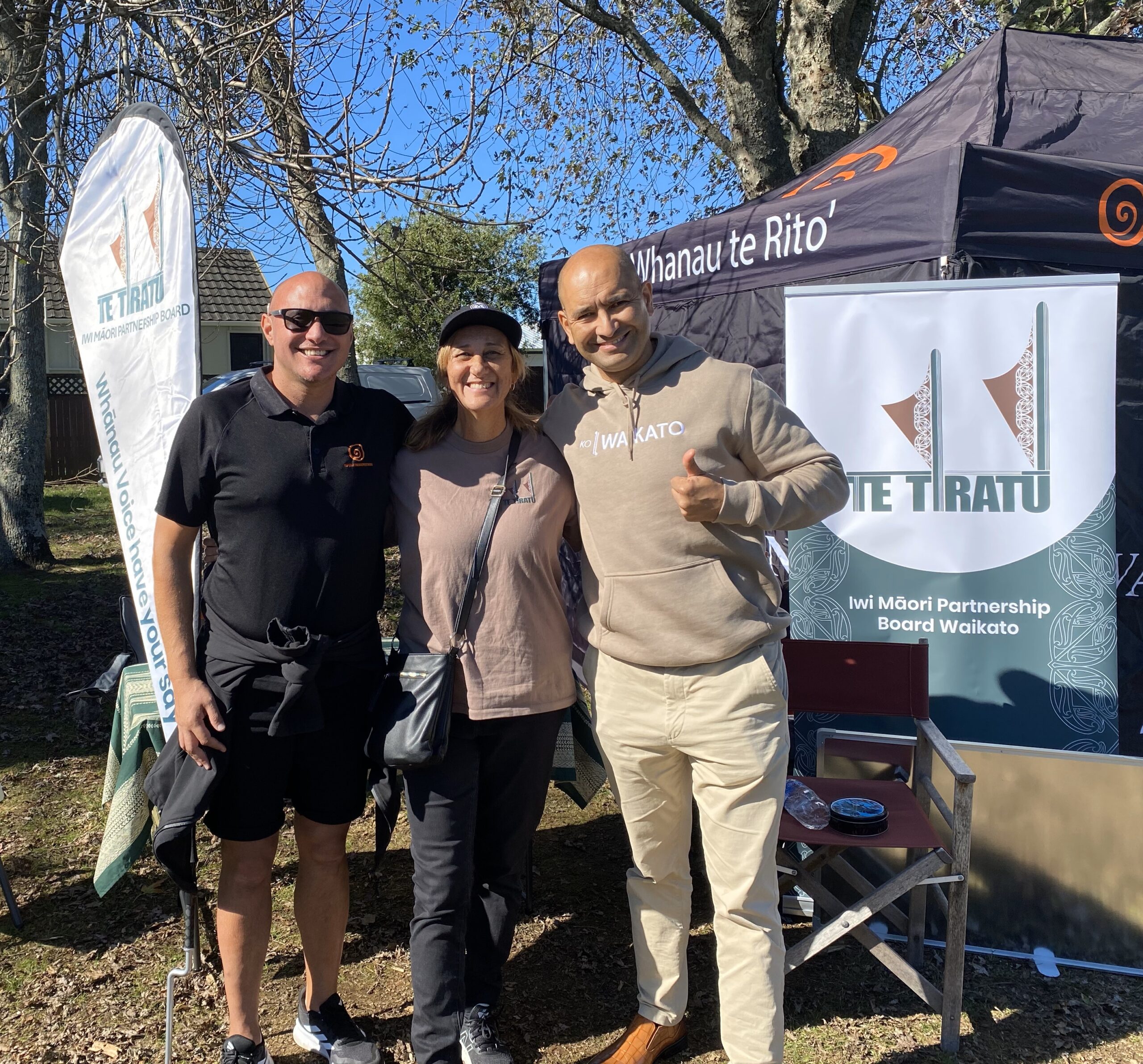This weekend, in the heart of Norton, Hamilton, our Whānau Voices kaimahi joined a neighbourhood Hauora Event organised by the Wairiki Whānau Mentoring Trust, a Māori-led organisation dedicated to creating meaningful change for whānau living at the margins across the Waiariki and Waikato regions.
It provided a positive, safe and non-judgemental space where whānau could speak openly—free from stigma or blame. This environment allowed them to reconnect with their true selves, laying the foundation for healing and unlocking the potential for deep, transformational growth.
The gathering brought together whānau, local hapori, and the local MP, Tama Potaka. His presence highlighted the importance of connecting political leaders with the real experiences of whānau at the flax-roots willing to share their kōrero about the challenges they face within the health system.
Our Whānau Voice kaimahi were there specifically because Norton is a community marked by pockets of higher deprivation, often tied to long-standing inequities. These conditions create unique challenges for our people that need to be heard firsthand.
“They didn’t know who we were,” said Megan Tunks from Whānau Voice Te Tiratū Iwi Māori Partnership Board. “But we had more conversations in person with whānau, rather than relying on questionnaires.”
The stories shared revealed the harsh realities whānau face: “Whānau told us they’re waiting weeks just to see a GP—if they can afford it at all. Some are turning to A&E because urgent care is too expensive, and regular appointments are too short to get the help they need,” Megan said.

Photo: Waata Heathcote Chief Operating Officer Wairiki Whānau Mentoring Trust, Megan Tunks Whānau Voice kaimahi Te Tiratū Iwi Māori Partnership Board and the local MP, Tama Potaka.
One particularly poignant story was of a kaumātua who had suffered multiple strokes but was left waiting at a clinic with no clear support. “These stories speak to something deeper—it’s not just about access; it’s about trust and the way services engage with our whānau.”
For many, these struggles go beyond the healthcare system. “Our people aren’t just talking about barriers; they’re talking about survival—housing struggles, accessibility blocks, healthcare gaps, and the hopes they carry for their tamariki and mokopuna.”
Megan believes this feedback reveals a clear need for more mobile services that meet whānau where they are at. Hauora Māori services, she said, provide a safe and trusted space where whānau feel less judged and more understood.
This shift towards more accessible, mobile, and culturally supportive health services is vital for creating meaningful change in the lives of whānau.
Throughout the hui, common themes emerged around the need for culturally safe services, wraparound whānau support, and systems that honour te ao Māori ways of being.
These whakaaro are invaluable, and the voices captured will inform local priorities, service design, and future planning—ensuring that whānau are not just consulted but are co-creators of the solutions that impact their lives.
When whānau voices are elevated, transformation is not only possible, it is inevitable.
Ngā mihi nui to all who shared their time, courage, and whakaaro.